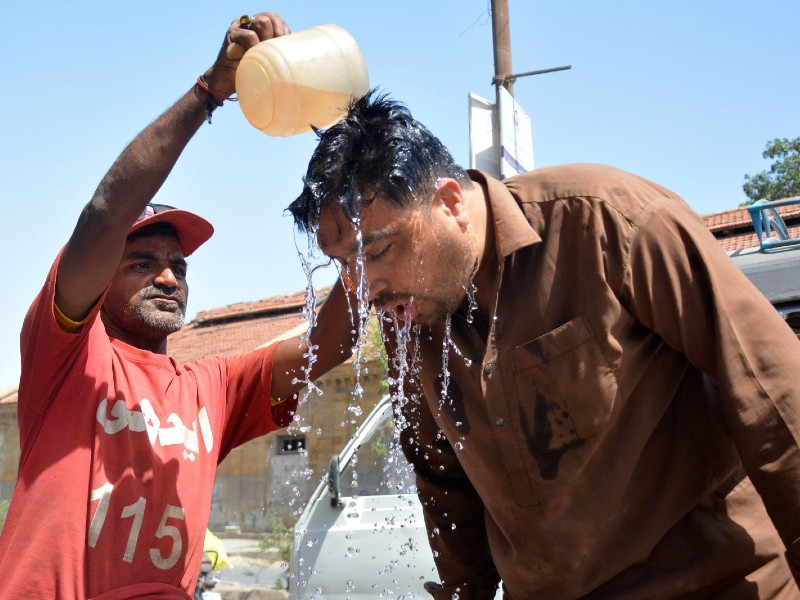
Even though excessive greenhouse gas emissions from the highly-industrialized Global North states have significantly raised heat levels all across the planet, countries like Pakistan, which have consistently failed to devise and implement a cohesive action plan in response to climate change, are now trapped in a furnace.
While rising heat levels and altered climate patterns are a major challenge for all cities in the developing country, the industrial hub, Karachi, appears to bear the brunt of global warming since the gradual proliferation of heat-trapping concrete constructions and alarming paucity of tree plantations have raised the odds of a devastating heatwave hitting the port city, which is already simmering at temperatures as high as 40 degree Celsius.
“The arrival of May could signal the possibility of an impending heatwave therefore, the concerned institutions should make all arrangements in advance in order to avoid the associated public health risks,” announced Sardar Sarfraz, Chief Meteorologist at the Meteorological Department.
Also read: Karachi experiences hottest day of the year on Sunday
According to the Centre for Disease Control and Prevention (CDC), heat-related illnesses occur when the body can no longer regulate its temperature since extreme levels of heat cause the sweating mechanism to fail, jeopardizing the body's ability to cool down. This results in a host of complications including confusion, loss of consciousness, seizures and even death.
Regrettably, this is not the first time that Karachi might witness a disastrous weather emergency as several heatwaves have hit the city during the past decade with the most serious occurring during May and June 2015, when at least 1300 people lost their lives due to the scorching heat, which caused the mercury scales to touch approximately 45 degree Celsius.
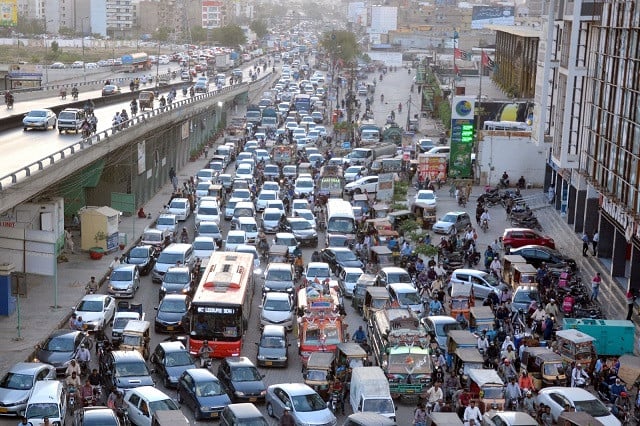
“May is the hottest month of the year and there is always the risk of a heatwave," emphasized Muhammad Tauheed, an urban planner.
What causes a heatwave?
Expanding on the heat crisis, Muhammad Tauheed, mentioned that out of 3600 square kilometres of land mass in Karachi, 1300 square kilometres have been occupied by dense, multi-storied buildings. “Shockingly, 80 per cent of landmass in the city has no form of plantation,” added Tauheed.
“Only 21 per cent of Karachi's area is currently covered with trees,” added Dr Amir Alamgir, a Professor at the Department of Environment at the University of Karachi.
According to Dr Moazzam Ali Khan, a Professor at the Department of Environment at the University of Karachi, over-construction has transformed Karachi into a concrete jungle, with 50 per cent more cement-based constructions existing in the city today, as compared to 2015, when the last serious heatwave happened.
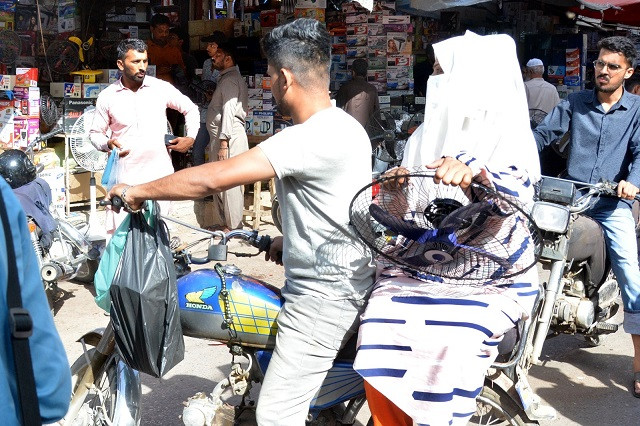
“Walls made from cement absorb sunlight during the scorching afternoons, which is steadily released into the atmosphere throughout the day and night. Over-construction has also led to the cutting down of trees, while encroachments have destroyed the green belts, resulting in a lack of greenery. Emissions from vehicles, factories and the burning of garbage have also altered climate patterns leading to longer and hotter summers. Ironically, the excessive usage of air conditioners has also exacerbated heat levels in the city since hydrofluorocarbon (HFC), which is commonly used in appliances like air conditioners and refrigerators, contributes to the depletion of the ozone layer, resulting in more solar heat reaching the Earth's surface and consequently leading to a continuous rise in temperature,” explained Dr Khan, who implored people to use natural cooling methods like painting their roofs white or layering it with limestone.
The vulnerable populations
Even though the predicted heatwave risks enervating all citizens who step outside the house, its draining effects are felt most by low-income locals, who amidst unceasing cycles of loadshedding, have no cool water facilities or awning installations to seek respite during their long hours of outdoor work.
For instance, Ameerun Nisa, an elderly woman selling children's clothes under the open sky at a market in Liaquatabad, felt that the government should construct small sheds for low-income people to escape from the heat. “Apart from the few, generous shopkeepers who keep cold water coolers outside their shops, there is no arrangement for poor people to quench their thirst,” lamented Nisa.
Similarly, Bilal, who works as a painter at a bus station in Liaquatabad shared his struggle to battle the intense heat in the city amidst lacking cool water facilities. “Due to the unavailability of cold drinking water points, hundreds of labourers like me have to buy cold drinks of different types for Rs20 per glass. Since Karachi has little trees, and no sheds and public water coolers, hundreds of daily wagers have no means of protecting themselves from the hazards of a possible heat wave,” said Bilal.
Highlighting a separate facet of the heat crisis, Naseema Khatun, a resident of Lyari, claimed that the suffering of low-income locals intensified during summers due to the problem of loadshedding. “People living in flats suffer the most during summers therefore most have invested heavily in batteries and charging fans to tackle the heatwave,” said Naseema.
“The demand for charging fans and batteries is at its peak at the moment. The price of a charging fan is between Rs1200 to Rs2000 while the price of a battery is Rs15,000 or more,” revealed Kamran, a shopkeeper selling electrical goods.
The way out
For a city grappling with frequent power outages, soaring temperatures exacerbate the challenges faced by its residents.
According to experts, planting trees can mitigate Karachi's heat impact during the long summer months.
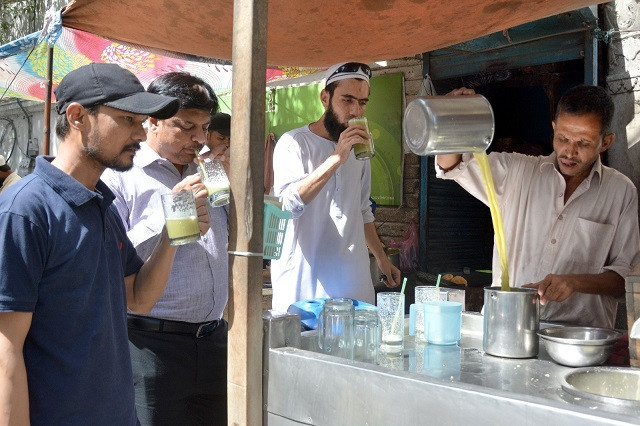
"All citizens should consider planting trees around their homes to foster green zones in the city," suggested Chaudhry Shabbar, a volunteer advocate for tree plantation.
Data from the IQAir Map indicates that the city's overall air quality is unhealthy, with pollution levels on the rise in various areas.
Dr Amir Alamgir cautioned that air pollution exacerbates high temperatures. "Annual vehicle fitness inspections must be strictly enforced to curb emissions and combat air pollution. Additionally, efforts to restore green belts are imperative," emphasized the environmental expert from the University of Karachi.


1732274008-0/Ariana-Grande-and-Kristin-Chenoweth-(1)1732274008-0-165x106.webp)



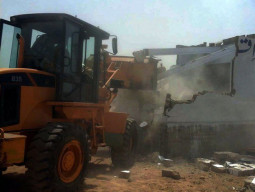





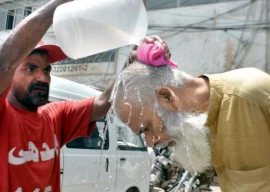
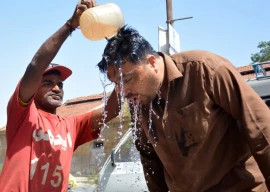
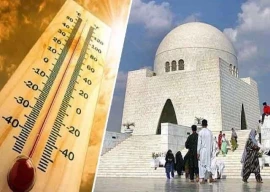







COMMENTS
Comments are moderated and generally will be posted if they are on-topic and not abusive.
For more information, please see our Comments FAQ